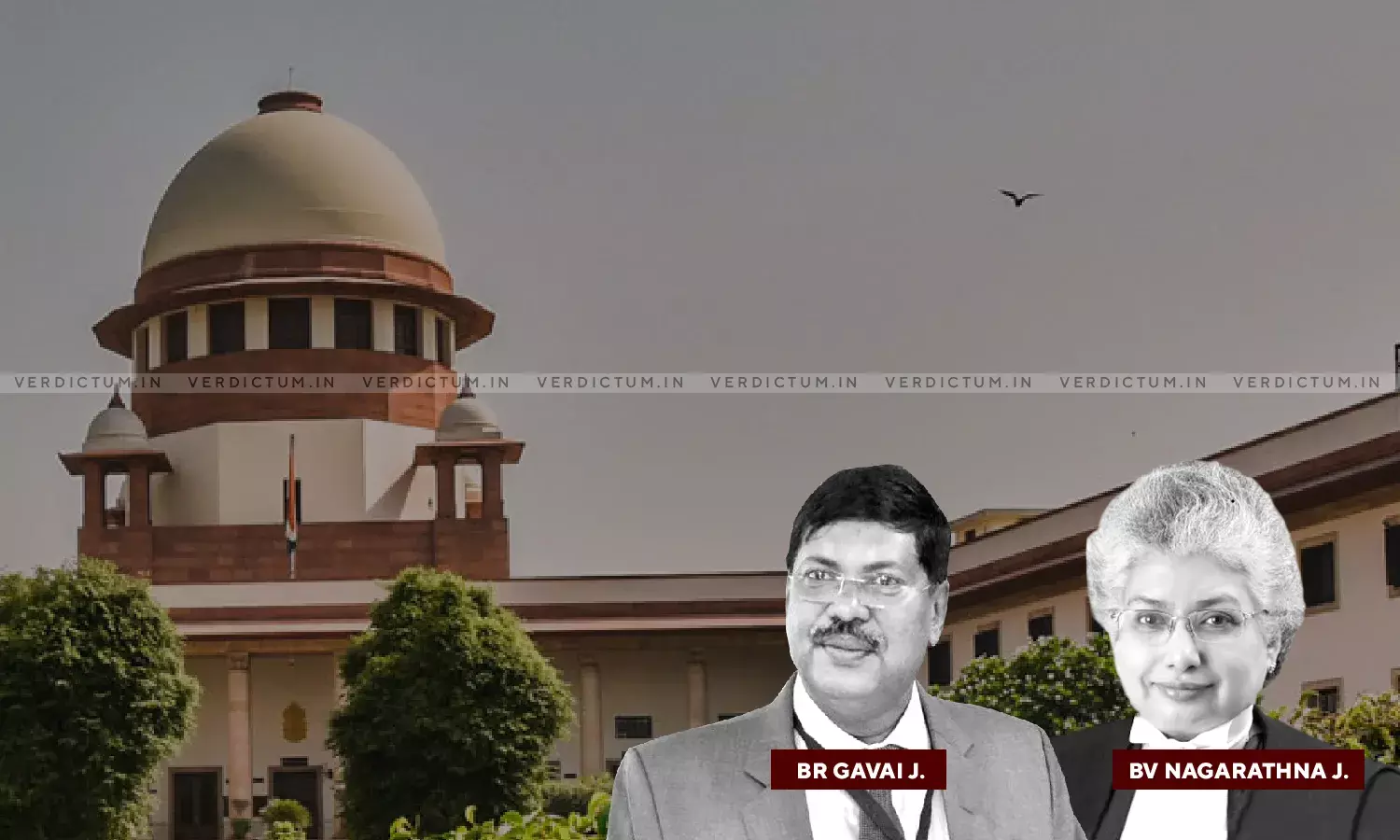Duty Of State & Citizens To Safeguard Forest Of Country, Resources Must Be Preserved For Future Generations- SC

The Supreme Court has observed that it is duty of the State and its citizens to safeguard the forest of the country and the resources are to be preserved for future generations.
The Bench of Justice BR Gavai and Justice BV Nagarathna observed-
"It cannot be disputed that Section 20 of the NGT Act itself directs the learned Tribunal to apply the principles of sustainable development, the precautionary principle and the polluter pays principle. Undisputedly, it is the duty of the State as well as its citizens to safeguard the forest of the country. The resources of the present are to be preserved for the future generations. However, one principle cannot be applied in isolation of the other."
The Court also held that it is necessary while protecting the environment, the need for sustainable development also must be taken care of and a proper balance between the two must be struck.
In this case, a batch of appeals were filed before the Supreme Court challenging the order dated February 18th, 2020 of the NGT, Principal Bench, New Delhi. The NGT had quashed and set aside the notice dated March 1st, 2019 issued by the State of Uttar Pradesh for establishing new wood-based industries (WBIs) and setting aside all the provisional licenses given in pursuance thereof.
The appeals also challenged the orders dated March 18th 2020, December 2nd 2020 and December 21st 2020 vide which the review applications filed by the State of Uttar Pradesh and the provisional license holders were rejected.
Senior Advocates Vikas Singh, P.S. Patwalia, Rana Mukherjee appeared for the State of UP, Senior Advocates V. Giri, Syed Waseem Qadri, V.K. Uniyal, Vinay Navare, V.K. Shukla, Advocates Prerna Singh and Rudraksh Gupta appeared for the Appellants who were granted provisional licenses and Senior Advocates Dhruv Mehta and Brijender Chahar appeared for Respondent No. 1 before the Apex Court.
The Apex Court referred to the finding of Forest Survey of India (FSI) which had also emphasized the need of promoting Trees Outside Forest (TOF) and thus observed-
"It has been observed that TOF are significant natural, renewable resources which make vital contributions to the agro-ecology, socio-economy of the rural area, and environmental amelioration in the urban area and feed WBIs with raw material and thus generate significant employment."
The Court in this context held that when the estimation was done by the FSI by applying the scientific method and had arrived at the conclusion based on satellite data, such a report could not have been brushed by the NGT lightly.
The Court also observed that there is no absolute prohibition for felling the trees which are in the prohibited category, however the same can be done in exceptional circumstances.
The Bench held that the Courts should not enter into an area that is the domain of the experts and thus held –
"FSI, which is undisputedly an expert body, had arrived at its estimation based on the scientific method. The learned NGT could not have sat in appeal over the opinion of the expert."
The Court further added, "It is further to be noted that the State has specifically pointed out before the learned NGT that on the establishment of WBIs, an investment of about Rs.3000 crore was likely to be attracted in the State; employment opportunities to over 80000 people will be available and the farmers of the State would get a more remunerative price. This would result in more impetus for large-scale plantation and agro-forestry."
The Court observed that NGT has failed to take into consideration the concerns expressed by the State. Further, it was also held that NGT has committed patent error in ignoring the expert's report and sitting in appeal over the same, thus the Bench held that the impugned orders of NGT are not sustainable in law.
The Court thus held that for the sustainable development for the State and on account of the availability of the timber, sanction of granting licenses can be permitted to continue, however the State would have to ensure that environmental concerns are duly attended to.
The Court directed the State to ensure that while granting permission for felling trees of the prohibited species, it should strictly ensure that the permission is granted only when the conditions specified in the Notification dated January 7th 2020 are satisfied.
Further, it was also directed that the State Government shall also ensure that when such permissions are granted to the applicants, the applicants scrupulously follow the mandate in the said notification of planting 10 trees against 1 and maintaining them for five years.
Accordingly, the Court allowed the appeals and quashed and set aside the impugned order passed by the NGT.
Cause Title – The State of Uttar Pradesh & Ors. etc. etc. v. Uday Education and Welfare Trust and Anr. etc. etc.
Click here to read/download the Judgment

